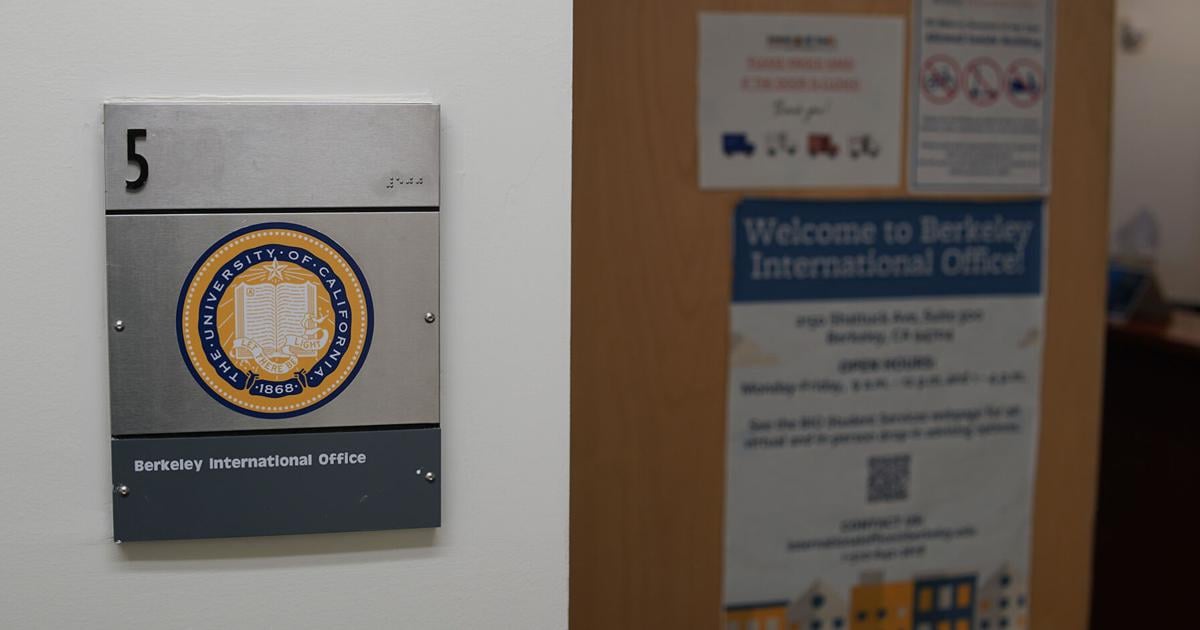It is hard to be a foreign student on a campus that is almost 85% American. “Excuse my English,” I say, whenever I ask someone to repeat themselves, misappropriate an expression or fail to share a piece of common sense. Apologies bridge these small ruptures easily. Almost always, I would be immediately excused by my warmhearted peers, as if to reassure me: I hear you.
Nevertheless, there are aspects to being foreign that are not as easy to understand. For example, what does the F-1 student visa mean? What are its terms and conditions? The intricate system of visa applications and legal status maintenance has produced an entire vocabulary of its own. For international students, every step — from updating travel signatures to securing work authorization — depends on the Berkeley International Office, or the BIO. Staying enrolled means staying in constant communication with the advisers, and thus being structurally dependent on this overextended, underfunded office.
In January 2021, then-UC Berkeley Chancellor Carol Christ allocated an additional $705,000 from the Student Services Fee to support the Berkeley International Office for five fiscal years. That funding, however, is set to expire in 2026. Meanwhile, the current federal administration’s rapidly changing immigration policies have intensified the pressure on the office’s 11 advisers, who provide services for all international students.
With the funding cycle nearing its end, the office now faces an uncertain financial future at a time when its work has never been more indispensable. In response, ASUC Senator Rayne Xue has introduced a senate resolution calling for the university to make the allocation permanent, marking the second time the ASUC has formally called for sustained institutional support for the office.
Under this tumultuous political climate, the connotation behind the term “international students” is constantly being rewritten and stigmatized. Consider the rhetoric within the Compact for Academic Excellence in Higher Education, a federal agreement introduced by President Donald Trump’s administration in October 2025, offering select universities preferential access to funding in exchange for compliance with new ideological and administrative measures.
Within the agreement, a section titled “FOREIGN ENTANGLEMENTS” authorizes the government to request and receive data on any foreign student and to monitor foreign gifts and transfers, ostensibly to prevent money laundering or the financing of terrorism. The compact warns that, “if not properly vetted,” foreign students “saturat(e) the campus with noxious values such as anti-Semitism and other anti-American values, creating serious national security risks.”
Although the compact was either formally rejected or declined by all nine institutions approached, the text itself reveals a deep institutional anxiety about global education itself: foreignness, it seems, is a valid ideological threat. The swarms of international students across campus — with their accents, visas, propaganda and un-American dreams — are truly a matter of security concern. The campus, supposedly a site of open exchange, faces the possibility of succumbing to a national frontier.
This shift in narrative is not unprecedented. Before the existence of the United States, it had been imagined by the universities. The earliest American colleges — Harvard (1636), William & Mary (1693), Yale (1701) — disciplined the colonial elite and cultivated the intellectual infrastructure for self-governance. Historically, higher education evolved alongside the rise of the nation-state, serving as an instrument of cohesion and self-interest, producing civic virtue and legitimizing the emerging republic. Yet as the nation matured, universities rebranded themselves into the vessel of universal progress, a moral project to uplift humanity through knowledge. Such faith is inscribed in the motto of the University of California: Fiat Lux, or “Let there be light.”
The myth of illumination attracts millions of students and aspiring scholars from across the globe, embarking on transcontinental journeys to seek knowledge that promises liberation. Therefore, higher education should not fail to live up to its promise.
If enlightenment is its creed to live by, then universality must be its responsibility to bear. Academia is not the property of any one nation; knowledge, when bound to power, only reinforces hierarchies and creates division. The ability to speak freely is not a weapon that international students bring to weaken the nation, but a privilege we come here to learn and practice — one that the university must safeguard.
At UC Berkeley, the promise of Fiat Lux begins with inclusion — and inclusion requires protection. It begins with policies made tangible: protect F-1 visa status. Ensure visibility and representation for international students. Resist participation in ideologically motivated screening. Fund the BIO. To continue funding BIO is to preserve not only an office, but a principle — that education, like light, must reach beyond the borders of nations, defending the right to learn for all.

